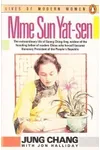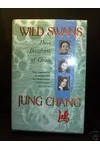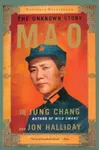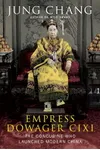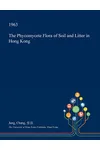Picture a Chinese-born storyteller who spun a family saga into a global sensation—meet Jung Chang! Her memoir Wild Swans isn’t just a book; it’s a time machine that whisks readers through a century of China’s triumphs and tragedies. With millions of copies sold and a voice that echoes across cultures, Chang’s works reveal the heart of a nation, even if they’re banned in her homeland.
Born in 1952 in Sichuan, Chang grew up in a world shaped by Mao Zedong’s policies, a backdrop that fuels her vivid storytelling. From her family’s struggles to her own journey to Britain, her life is as gripping as her prose. Let’s dive into the story of this literary trailblazer!
The Making of Jung Chang
Jung Chang was born in Yibin, Sichuan, to Communist Party officials, a privileged start that soon collided with the chaos of the Cultural Revolution. At 14, she briefly joined the Red Guards, thrilled by the fervor, but quickly recoiled from their violence. Her parents’ opposition to Mao’s policies led to their public humiliation and imprisonment, shaping Chang’s critical lens. After working as a peasant, barefoot doctor, and electrician, she seized a scholarship to study in Britain in 1978, becoming the first from Communist China to earn a PhD from a British university.
Her love for literature, sparked by her father’s passion, bloomed in London. Away from China’s censorship, Chang found her voice, blending personal memory with historical sweep to craft stories that resonate worldwide.
Jung Chang’s Unforgettable Stories
Chang’s masterpiece, Wild Swans: Three Daughters of China (1991), is a family epic tracing her grandmother, mother, and herself through China’s turbulent 20th century. With over 15 million copies sold in 37 languages, it’s a heartrending blend of memoir and history, banned in China for its unflinching look at Mao’s regime. Her grandmother’s life as a warlord’s concubine, her mother’s rise in the Communist Party, and Chang’s own disillusionment paint a vivid portrait of resilience.
In 2005, Chang and her husband, Jon Halliday, published Mao: The Unknown Story, an 832-page biography that portrays Mao as a ruthless tyrant. The book, which took 12 years to research, sparked debate for its critical stance but sold millions, cementing Chang’s reputation for bold narratives. Empress Dowager Cixi (2013) reframes Cixi as a reformer who modernized China, while Big Sister, Little Sister, Red Sister (2019) explores the influential Soong sisters. Chang’s style—meticulous, intimate, and unflinching—turns history into a page-turner.
Her works don’t shy away from controversy, challenging official narratives with firsthand accounts and extensive research. Readers are drawn to her ability to humanize history, making distant events feel personal and urgent.
Why Jung Chang Matters
Jung Chang’s books are more than stories; they’re windows into China’s soul, offering Western readers a rare glimpse into its past. Her courage in exposing Mao’s atrocities, despite censorship, has inspired countless readers and writers to question authoritarianism. Awards like the British Book of the Year and a CBE in 2024 honor her literary and historical contributions. Chang’s global impact lies in her ability to weave personal and political narratives, reminding us of the power of truth-telling.
Her banned books, smuggled into China, spark underground conversations, proving that stories can defy borders. Chang’s legacy is one of resilience, showing how one voice can illuminate a nation’s history for the world.
- Born: March 25, 1952, Yibin, Sichuan, China
- Key Works: Wild Swans, Mao: The Unknown Story, Empress Dowager Cixi
- Awards: British Book of the Year (1993), CBE (2024)
- Fun Fact: First person from Communist China to earn a British PhD
Snag Wild Swans and dive into Jung Chang’s spellbinding world of history and heart—your bookshelf will thank you!
